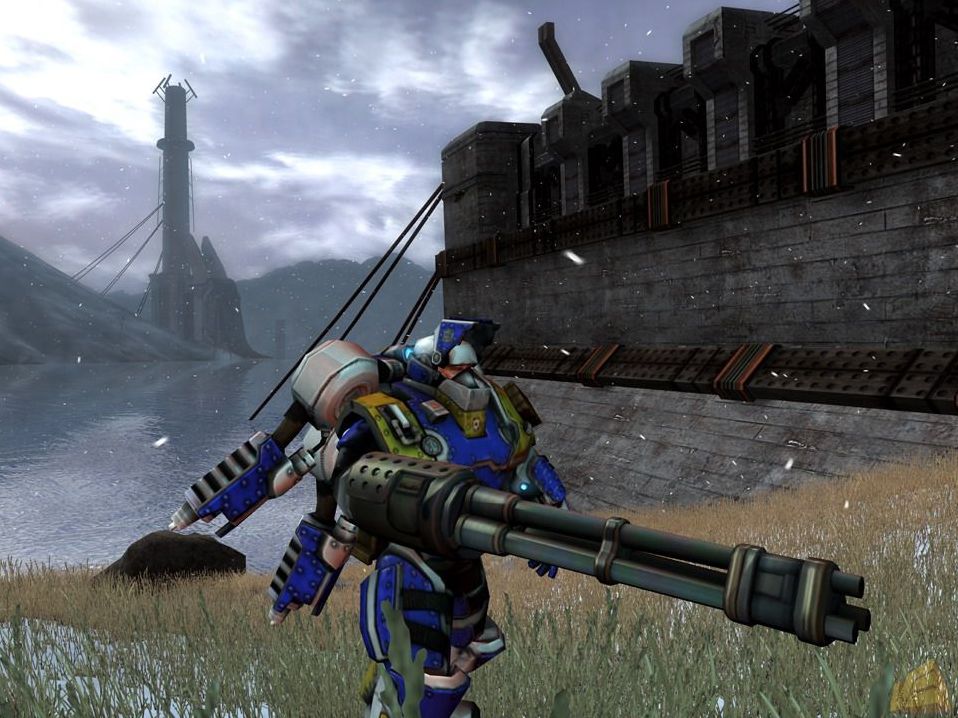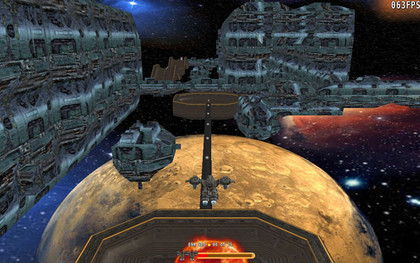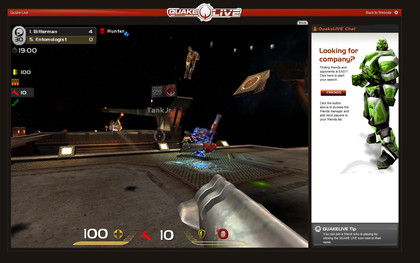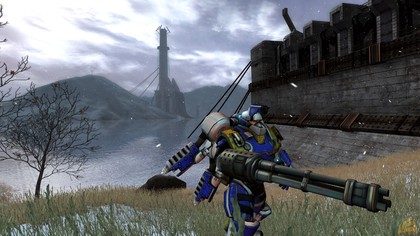
Sign up for breaking news, reviews, opinion, top tech deals, and more.
You are now subscribed
Your newsletter sign-up was successful
One day, the prophets say, we won't have operating systems. Our iPadBookPhones will load directly into a browser, one so laden with plug-ins that it can play any game there and then - games which look as good as, if not even better than, the big-budget titles of today.
It's a lovely idea, but until the software, hardware, internet providers and games industries pull off some unprecedented almighty group hug, it's not terribly realistic.
What is increasingly realistic, however, is playing games from our browsers. In fact, given all the mud-flinging about piracy and DRM that's affecting mainstream PC gaming at the moment, it's not impossible that games streamed directly to a browser are the bright future of this ever-changing platform.
You already know about Flash, Adobe's omnipresent plug-in. It's the mainstay of 2D browser games, and incredible things have been done with it - as a whistlestop tour of Kongregate or Newgrounds will reveal.

FLAT: Shockwave game Mars Orbital gives a good sense of what Adobe's plug-in is capable of graphically. Adequacy, basically
As soon as Apple relents and allows it onto the iPhone, it'll take over handheld gaming almost immediately. On the desktop, though, it's not really interested in 3D gaming. It's much more about making flat surfaces move - due to its movie/animation heritage - than about shifting polygons around.
Its kissing cousin Shockwave is much more willing and able to render 3D worlds, but graphically and in terms of interface complexity remains a long way behind 'real' games. So what are the other options? Microsoft Silverlight? Er, no.
Sign up for breaking news, reviews, opinion, top tech deals, and more.
Two types of browser game engine
There are two types of what you could call browser engines. There's the stuff that 'just works', so long as you have the plug-in, and then there are the ones that essentially call up the game and the game engine as a separate application.
To take two high-profile examples, there's Quake Live and Battlefield Heroes. The world got ever so excited when these were announced - it's Quake 3 in a browser! It's really not - though it's certainly impressive, it's loosely attached to a browser, not part of a browser.
Fire up that or Battlefield Heroes - both good-looking, if a long way short of full-on DirectX 9/10 shininess, titles - and while they do run within a browser window, it takes a lot of faff to initially get to that point.
In Quake Live's case, that's because the engine is a modified version of Quake III Gold which runs as compiled code on your PC. It's a bespoke game, rather than being data streamed by a broader plug-in that's been security-approved by the various browsers. That's the case for Flash and Shockwave, which thus can run supporting web applications without bothering you to OK and install stuff.

BROWSER QUAKE: The remarkably fluid Quake III remake Quake Live brings the id Tech 3 engine to browsers
There are various one-off games/engines that exist in this grey zone, and if they were able to become more generalised plug-ins could quite respectably realise the 'It Just Works' ethos browser games need exhibit.
Take the Torque engine, an ongoing extension of the tech behind the cult 2001 shooter Tribes 2. Probably its highest-profile implementation is in the Penny Arcade Adventures - it's capable of decent prettiness in the right hands. It's also proven great for browser games - in the form of the InstantAction portal and plug-in, run by Torque's owners Garagegames.
A collection of free-to-play games from various genres, InstantAction might not have you uninstalling Modern Warfare 2 just yet, but it is doing relatively good-looking 3D with proper mouse controls in a browser. Fallen Empire: Legions is the best one to poke at, an FPS based around the Tribes Model. Which means jetpacks...

WORTH PLAYING: Fallen Empire: Legions is the Torque engine's finest hour for now. Garagegames' interest seems to have turned to Xbox Live Arcade et al for the time being, but the continued improvements to the engine should trickle down to browsers
Alas, for now InstantAction games are locked into InstantAction's portal (which offers server browsing and social networking, as well as flogging a ton of micropayment items), so while there's plenty of fun to be had there, it doesn't look set to ever become a universal plugin. So what could make the humble browser into a click-and-play gaming platform? Well, that'll be Unity3D.